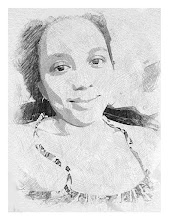Are you dieting your way to bone loss?
Are you aware that the diet you follow may be depleting your bones of essential nutrients and increasing your chances of developing osteoporosis? Popular diets may promise quick weight loss, but calcium and other important nutrients are often missing from the menu, which can lead to bone loss.
And women who consistently limit what they eat to avoid gaining weight may undermine the health of their bones, according to a study by ARS researchers in California. (1)
The study looked at the eating behavior of women between the ages of 18 and 50 and found that those classified as "restrained eaters" had significantly lower bone mineral density and bone mineral content (key indicators of overall bone strength and health) than women who said they weren't concerned about what they ate.
"Exercise and eating a well-balanced diet with adequate calcium, are two of the best ways to keep your bones strong and healthy." advise the researchers.
Calcium is not only good for your bones but can help you maintain a healthy, low fat diet too. There has been increasing media coverage about numerous studies showing that a diet rich in calcium helps reduce body fat.
Why is calcium important in weight loss?
Calcium is a fat burner. High-calcium diets seem to favor burning rather than storing fat. Researchers say this is because calcium stored in fat cells plays an important role in fat storage and breakdown.
Calcium changes the efficiency of weight loss . In fact, study after study has shown that the people with the highest calcium intake overall weighed the least, and the people with the lowest calcium intake had the highest percentage of body fat. (2,3,4)
When overall calorie consumption is accounted for, calcium not only helps keep weight in check, but can be associated specifically with decreases in body fat. A low daily calcium intake is associated with greater tendency to gain weight, particularly in women. (5)
Researchers found that adolescent girls who consumed more calcium weighed less and had less body fat than girls who consumed the same amount of calories from other sources. (6)
Previous studies have shown that a higher calcium intake can block body fat production in adults and preschool children (7), but this was one of the first studies to show that it might have the same effect in body-conscious preteen and teenage girls.
But aren't dairy products fattening?
Some dieters consider dairy products to be fattening, but the evidence suggests the opposite is true.
Consumption of calcium-rich dairy foods can actually help to reduce and prevent obesity. Over 20 recent studies show that milk products actually contribute to weight loss.
A new study in obese adults, presented at the First Annual Nutrition Week Conference, showed that increasing calcium intake by the equivalent of two dairy servings per day could reduce the risk of obesity by as much as 70 percent. (8)
The study provided clinching evidence that calcium in low-fat dairy products can help adjust your body's fat-burning machinery and help keep your weight under control.
In another study, obese subjects placed on a high-calcium diet, with yogurt as the calcium source, showed markedly greater fat loss than those on a low-calcium diet. (9)
Numerous studies have shown that dairy calcium is more effective in reducing body fat than other forms of calcium. (10)
Why does diary calcium work so well?
Researchers believe that other nutrients found in milk products act in synergy with calcium to reduce fat more efficiently.
Glycomacropeptides (found in whey proteins derived from milk) in particular, are known to create feelings of satiety and fullness and decrease food intake. (11,12,13)
Foods that are a good source of calcium include cheese, milk, ice cream, baked beans and other dried legumes, dried figs, broccoli, most dark-green leafy vegetables, and soft fish bones like those in canned salmon.
Disclaimer: If you are under 18, pregnant, nursing or have health problems, consult your physician before starting any weight loss plan. The information here is not provided by medical professionals and is not intended as a substitute for medical advice. Please consult your physician before beginning any course of treatment.
References:
1. Dieters May Lose Bone Density. April 1999; Agricultural Research magazine
2. Regulation of adiposity by dietary calcium. Zemel MB et al. [2000. FASEB J 14:1132-1138.]
3. Regulation of adiposity and obesity risk by dietary calcium: mechanisms and implications. Zemel MB. 2002. [J Am Coll Nutr 21: 146S-151S.]
4. Effects of dietary calcium on adipocyte lipid metabolism and body weight regulation in energy-restricted aP2-agouti transgenic mice. Shi H et al. [2001. FASEB J 5:291-293.]
5. Calcium intake, body composition, and lipoprotein-lipid concentrations in adults. Jacqmain M et al. [2003. Am J Clin Nutr 77:1448-1452.]
6. Higher dairy intake is associated with lower body fat during adolescence. Novotny R et al. [2003. Poster Presentation, Experimental Biology Meeting, April, San Diego, CA.]
7. The role of dietary calcium and other nutrients in moderating body fat in preschool children. Carruth BR and Skinner JD. [2001. T Int J Obesity Relat Metab Disord 25:559-566.]
8. Calcium and Dairy Acceleration of Weight and Fat Loss during Energy Restriction in Obese Adults. Zemel MB et al. [Obes Res. 2004 Apr;12(4):582-90.]
9. Dairy (yogurt) augments fat loss and reduces central obesity during energy restriction in obese subjects. Zemel MB et al. [2003. FASEB J A1088:679.3]
10. Calcium and Weight: Clinical Studies. Heaney, R.P., Davies, K.M., Barger-Lux, M.J. [Journal of the American College of Nutrition, 21(2), 2002, pages 152S-155S.]
11. Cholecystokinin decreases food intake in rats. Gibbs J, Young RC, Smith GP.J Comp [Physiol Psychol 1973 Sep;84(3):488-95]
12. Cholecystokinin antibody injected in cerebral ventricles stimulates feeding in sheep. Della-Fera MA, Baile CA, Schneider BS, Grinker JA. [Science 1981 May 8;212(4495):687-9]
13. Peptides with CCK-like activity administration intracranially elicit satiety in sheep. Della-Fera MA, Baile CA. [Physiol Behav 1981 Jun;26(6):979-83]
